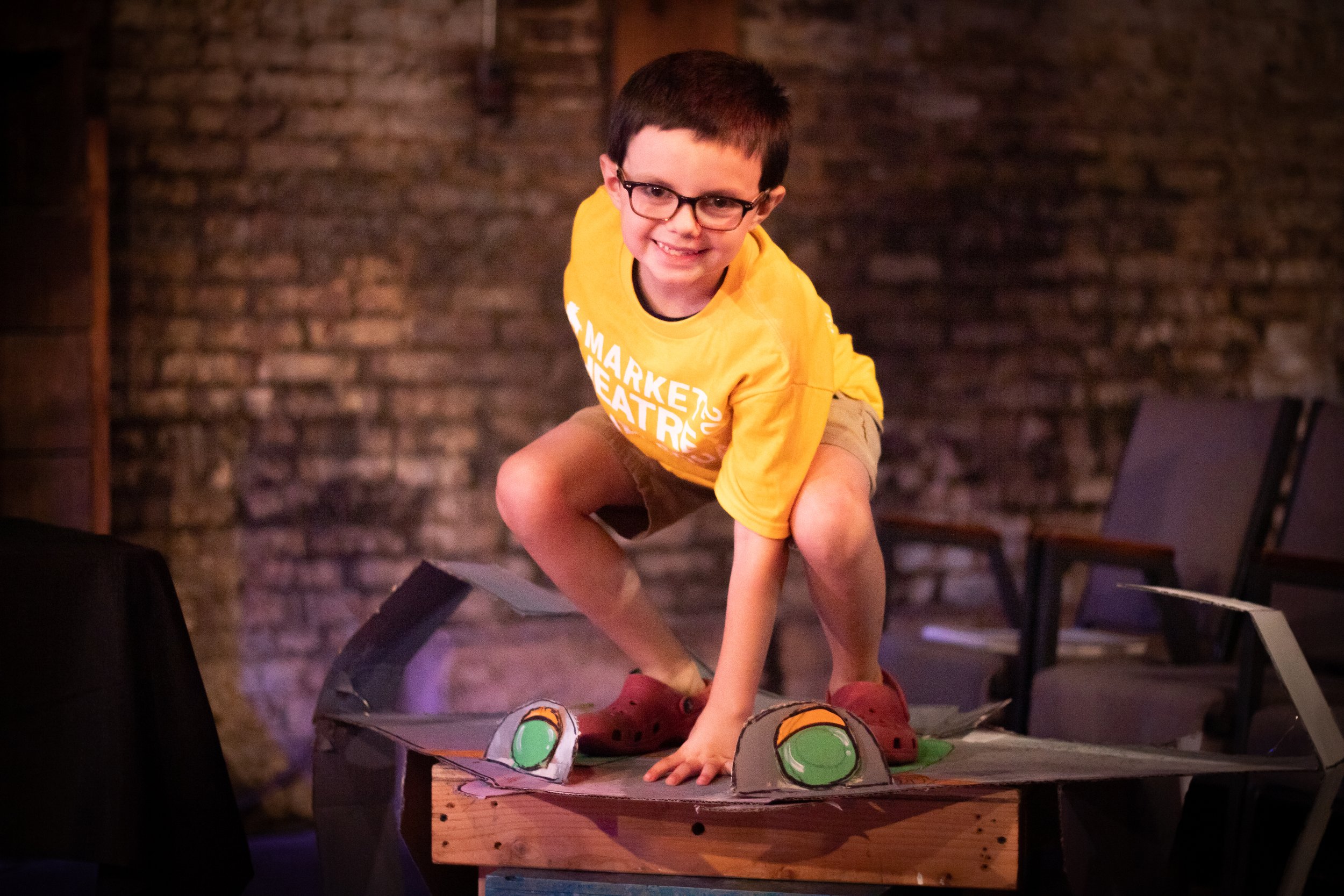What was your first experience with the theatre? Where was it, and how did you get there? What made it memorable? My first experience with the theatre was in kindergarten; my school was performing a play. I don’t remember the play, and I don’t remember what it was about, but what I do remember is being enthralled with seeing the students on stage pretending to be someone else. I wanted nothing more than to join them. I was constantly checking out plays from the library and acting them out. I fashioned a stage in my imagination and got to work. By seeing others perform, the seeds were planted for my own future love of the theatre. By having theatre that was accessible to me, those seeds were able to grow and blossom. Because someone made theatre accessible to me, I found my passion, and I am now working in, creating, and attending theatre, and I wouldn’t want to do anything else with my life. My question is: how do we make theatre accessible so that others may find their love for this craft on stage, backstage, or in the audience?
What is Accessibility?
Market’s free Shrek production in Carolina Wren Park. Photo by Angel Ruff Photography
Accessibility is a word that has different meanings depending on who you ask. For some, accessibility means being able to enter a space or a room where they were previously hindered; for others, it means creating an opportunity to gain something previously thought to be out of reach. Both of these ideas are built on the concept that there is some barrier prohibiting the ability of someone to participate or obtain a good, service, or idea. These barriers have been felt (both inside and outside of the theatre community) in an extreme way as the Upstate continues to deal with the effects of the Pandemic.
When asked, Noah Taylor (Executive Artistic Director/Founder) and Drew Whitley (Associate Artistic Director) of Market Theatre said that accessibility was “the removal of barriers between both participants in and audiences of the arts.” This answer left me asking, who is Market Theatre, what barriers are common in the Upstate, and how does Market Theatre work towards removing those barriers?
Who is Market Theatre?
The Market Theatre Company connects and inspires our community by creating quality art, education opportunities, and a vibrant community arts hub.
2022 summer campers take a break to pose for a group photo.
We believe theatre has the power to better our community by inspiring our empathy and giving everyone opportunities to see the world through someone else’s eyes.
We believe that the arts are for everyone.
We believe everyone can make a tangible difference in our community. We are passionate about giving youth challenging, exciting opportunities to engage with the arts.
What Barriers Do Those in the Upstate Face?
A talkback with mental health professionals and counselors following a performance of Market Theatre’s Mobile Production Unit performance of Every Brilliant Thing.
There are several barriers those trying to participate in or attend the theatre in the Upstate face. There are also equitability, racial, representation, and sexual and gender identity barriers but these topics will be discussed in other posts. Often the barriers faced in the Upstate include (but are not limited to):
• Money
• Location
• Physical or Mental Barriers
• Lack of Awareness
How does Market Theatre remove these Barriers?
A camper poses with his project for one of our theatrical design camps
The barriers that theatre participants face (both on stage and in the audience) can often feel insurmountable. However, Market Theatre does several things to combat these barriers to accessibility. 4 ways that Market Theatre combats barriers to accessibility are:
1. Offering low ticket prices (these can be affordable or free)
2. 50% of summer camp students are on a scholarship
3. Location: they try to make people aware of their location in the arts center, but also bring the arts to locations that allow attendees to attend for free
4. Market Theatre also brings their shows to schools to allow student access to theatre in spaces that may not be able to provide them the opportunity to theatre.
What can I do to Help?
Market Theatre’s 2022 Arts for All Gala where we celebrate the upcoming season and recognize local artists who are making waves in our community.
Of course, there are many ways to help Market Theatre. If you are able to donate, that is always helpful. These donations go towards helping produce the productions, scholarships for more students to attend camps, and support the mission of providing accessible theatre to those in the Anderson community and the Upstate.
A free way you can help support is by spreading the word about what is happening at Market Theatre, signing up for the email list, inviting a friend who hasn’t been to a show, or sharing a post on social media. By doing these things, YOU can help expand the reach of Market Theatre
and the programs they offer and be a part of the solutioto removing some of these barriers.
Conclusion
There is so much more to be said on this topic, and I look forward to writing about it more in the future, but let me leave you with this: I think back to my first experience with the theatre I don’t remember the name of the play, the story, or even the set design. What I remember most is the people who were onstage embodying these characters. This beautiful art form is built by and for people, and it is through people – being aware of each other and the barriers to accessibility that we face – that Market Theatre will continue to thrive.












